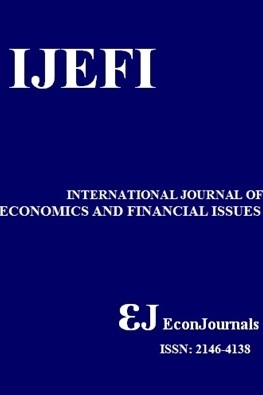The Effectiveness of Fraud Prevention and Detection Methods at Universities in Indonesia
The Effectiveness of Fraud Prevention and Detection Methods at Universities in Indonesia
Fraud Prevention Fraud Detection, Universities, Indonesia,
- Başlangıç: 2011
- Yayıncı: İlhan ÖZTÜRK
Al‑‘aqd Al‑sahih: The Legal Basis for Determining the Validity of Islamic Financial Transactions
Abdullahi Saliu Ishola, Yusuf Abdul Azeez, Norfadhilah Mohamad Ali
Lock-up Expiry and Trading Volume Behaviour of Malaysian Initial Public Offering’s
Abdolhossein ZAMENİ, Othman YONG
Hacine Gherbi Elhachemi, Mohammad Azmi Othman
Ibrahim Danjuma, Ibrahim Abdullateef Kola, Badiya Yusuf Magaji, Hauwa Modu Kumshe
Financial Theories with a Focus on Corporate Cash Holding Behavior: A Comprehensive Review
Muhammad Sohail Tahir, Mohd Norfian Alifiah, Muhammad Usman Arshad, Faiza Saleem
Effects of Organizational Justice on Organizational Commitment
Asim Rahman, Naveed Shahzad, Kiran Mustafa, Muhammad Fayaz Khan, Faizan Qurashi
The Impact of Migration on Rural Poverty: The Case Study of District Faisalabad, Pakistan
Rakhshanda KOUSAR, Farah NAZ, Tahira SADAF, Sultan Ali ADİL, Tayyab Zeeshan SHAHİD, Shahid MUSHTAQ
Zul-atfi ISMAİL, Azrul A. MUTALİB, Noraini HAMZAH
Mohammed Yussoff IBRAHİM, Zulkipli GHAZALİ, Haseeb Ur RAHMAN
Default Prediction in Pakistan using Financial Ratios and Sector Level Variables
